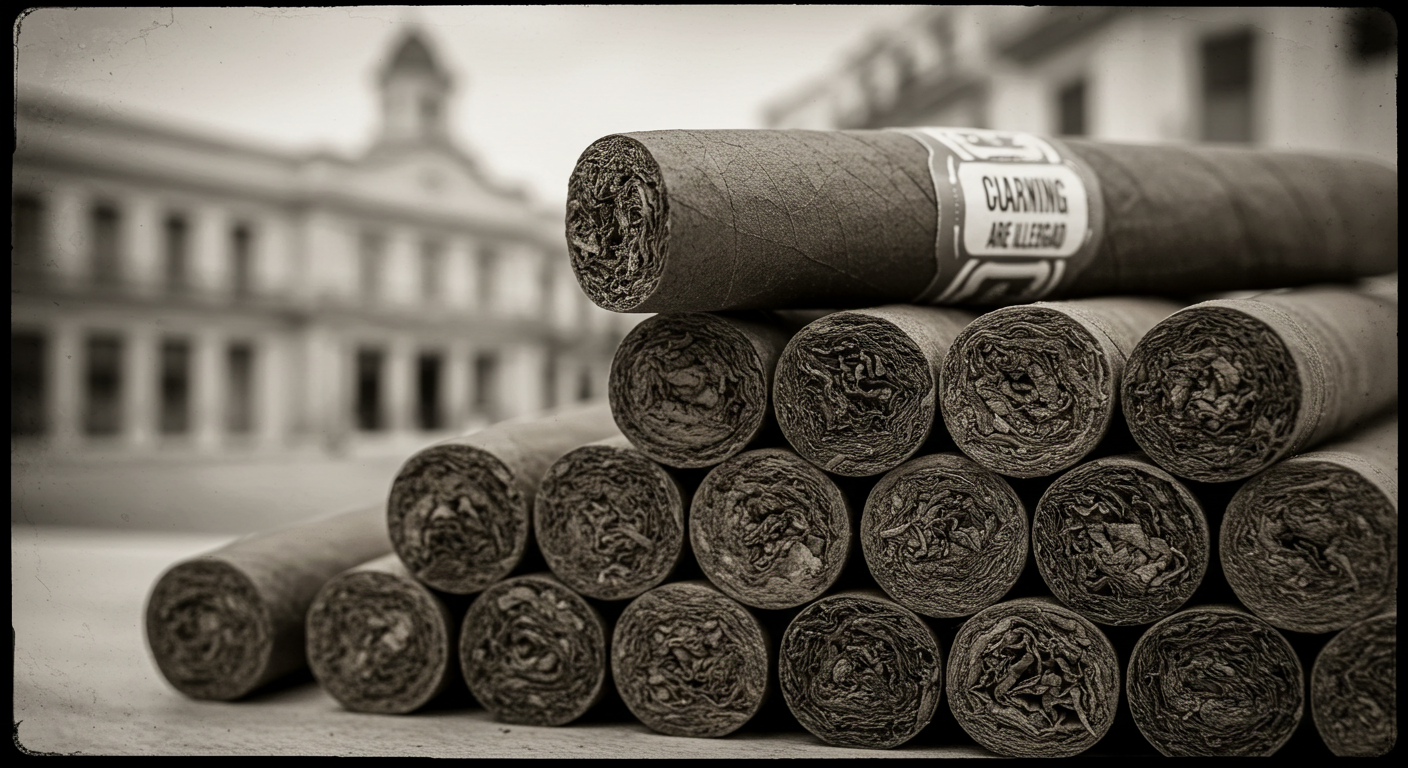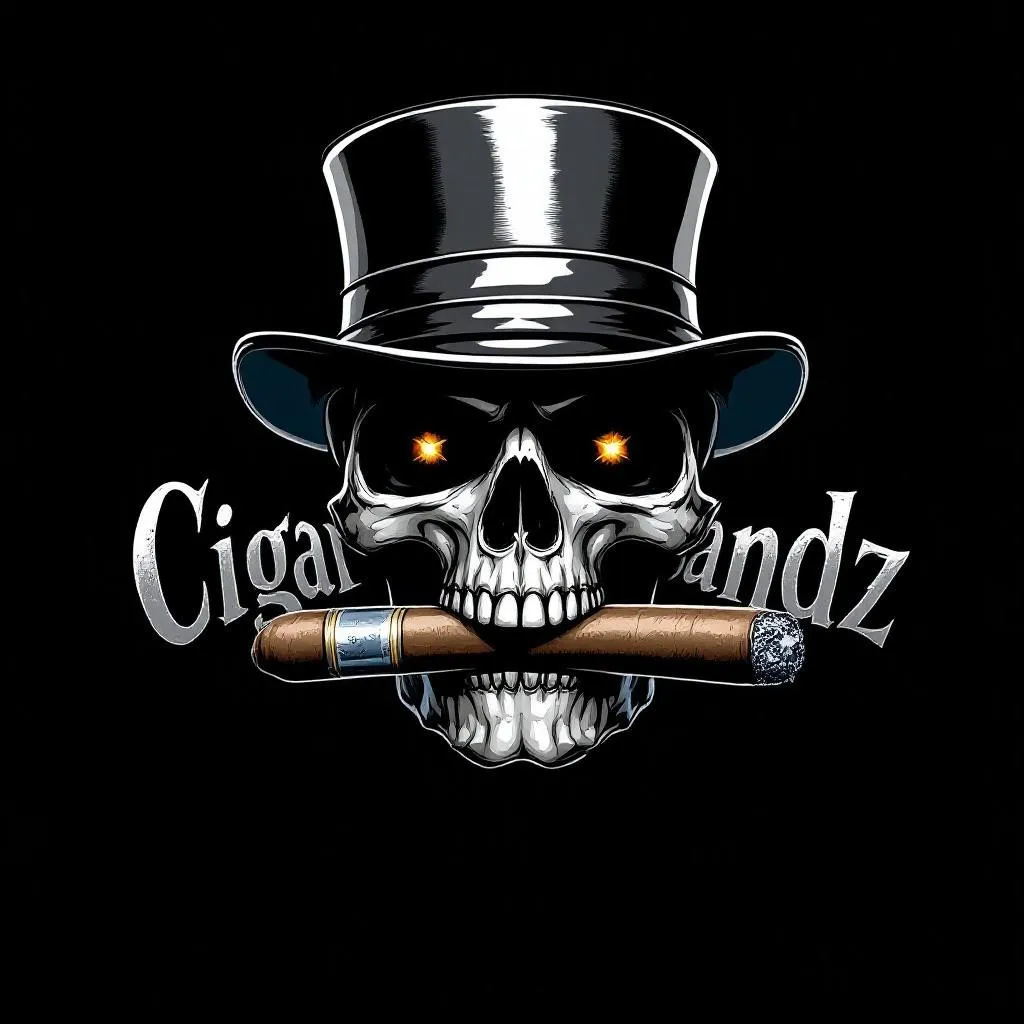
Why Cuban Cigars Are Illegal: A Deep Dive into the Laws
Cuban cigars have long been regarded as the epitome of luxury and craftsmanship, making them highly sought after by cigar aficionados worldwide. However, despite their premium quality, Cuban cigars remain illegal in the United States. But why? What historical, political, and economic factors have contributed to this ban? In this post, we explore the reasons behind the ban on Cuban cigars and how it has shaped US-Cuba relations and global cigar trade.

The Historical Context Behind the Ban
Early Relations Between the US and Cuba
Before the Cuban Revolution in 1959, Cuba and the United States had strong economic ties. Cuba was a significant trade partner, and its tobacco industry was highly influential. Cuban cigars were a luxury enjoyed by many in the US, and the island was known for producing some of the finest cigars in the world.
The Cuban Revolution and the Impact on Trade
The Cuban Revolution led by Fidel Castro dramatically shifted the relationship between the US and Cuba. With the rise of a socialist government, Cuba became a communist state, and the political landscape in the region changed dramatically. This shift prompted the United States to take action to limit its relations with Cuba.
In 1960, the US imposed an embargo on Cuba, which severely restricted trade between the two countries. The following year, President John F. Kennedy formalized this embargo, which included a ban on Cuban cigars.
The Legal and Political Context
US Trade Embargo Against Cuba
The US trade embargo against Cuba was initiated in the early 1960s, following the Cuban government’s move toward communism. The embargo, which was expanded and reinforced over the years, prohibited nearly all trade between the two nations, including the importation of Cuban cigars.
How the Ban Affects Cuban Cigars Specifically
Cuban cigars, once a staple in the American cigar market, became illegal to import into the United States after the embargo was put in place. The US government viewed the Cuban tobacco industry as a part of the broader communist economy and imposed the ban as part of a larger political strategy.
This ban is enforced by the Treasury Department’s Office of Foreign Assets Control (OFAC), which ensures that no Cuban goods, including cigars, enter the country legally. Anyone caught attempting to import Cuban cigars can face fines and penalties.
The Economic and Trade Implications
Impact on US and Cuban Economies
The Cuban cigar trade was once a booming industry, but the embargo left a lasting impact on both economies. For Cuba, the loss of its largest market, the US, meant a significant decline in sales and a loss of potential revenue from one of the island's most famous exports.
For the United States, the embargo meant that American consumers could not legally enjoy the finest cigars from Cuba, which affected both the luxury market and the broader tobacco industry. The demand for Cuban cigars, however, did not disappear, and many cigar enthusiasts began to seek ways to import them illegally.
Cuban Cigars in Global Markets
While the US has maintained its ban on Cuban cigars, the global market for Cuban tobacco has thrived. Countries around the world, including Canada, the UK, and much of Europe, have maintained strong trade relations with Cuba. Cuban cigars are sold in many countries and are viewed as a symbol of quality, craftsmanship, and cultural heritage. In addition to Cuban cigars, there are also premium alternatives, such as the best farmhouse cigars, which offer exceptional flavors and quality. If you're a cigar enthusiast looking for top-tier cigars, farmhouseblends offers a curated selection of the finest cigars, ensuring that every smoker can enjoy a premium experience, whether they are savoring Cuban or other world-renowned cigars.

Why Some Want the Ban Lifted
Cultural Influence
Cuban cigars are not only about taste and quality; they represent a rich cultural heritage. For many cigar enthusiasts, Cuban cigars are seen as a symbol of luxury, sophistication, and rebellion. The allure of these cigars has only grown with the ban, making them even more desirable to those in the US who can’t legally purchase them.
Calls for Policy Change
Over the years, there have been many calls for the ban to be lifted. Some argue that the embargo is outdated and that the US should focus on improving relations with Cuba. In recent years, there have been moments of hope, such as during the Obama administration, when some restrictions were relaxed, allowing for the legal importation of Cuban cigars for personal use.
However, as of today, Cuban cigars remain illegal to buy or sell in the United States.
FAQs About Cuban Cigars
Are Cuban cigars legal anywhere in the US?
Cuban cigars are illegal to buy or sell within the US. However, they can be legally brought into the country by travelers under certain conditions. For example, US citizens who visit Cuba and return with Cuban cigars for personal use may be allowed to bring them back, but they must not exceed the quantity limits imposed by US Customs.
How do Cuban cigars compare to other cigars?
Cuban cigars are often regarded as the finest cigars in the world. They are made from high-quality tobacco grown in the fertile soil of Cuba and are renowned for their craftsmanship, flavor, and smoothness. While other regions like the Dominican Republic, Nicaragua, and Honduras also produce high-quality cigars, Cuban cigars are often considered the gold standard.
Can I buy Cuban cigars legally online?
Currently, it is illegal to buy Cuban cigars online if you are in the United States. However, some websites may ship them to countries where Cuban cigars are legal, but it remains unlawful to have them imported into the US.
Has the law changed in recent years?
In recent years, there have been some attempts to relax restrictions on Cuban cigars, particularly during the Obama administration. However, the ban is still enforced under current US law, and Cuban cigars remain illegal for import or sale within the United States.
Conclusion
The ban on Cuban cigars in the United States is a result of a complex interplay between historical events, political decisions, and economic considerations. While the political landscape may change over time, the legacy of the Cuban cigar ban continues to shape US-Cuba relations and the global cigar industry.
For cigar enthusiasts, the allure of Cuban cigars persists, despite the legal restrictions. As global relations evolve, it’s possible that we may see changes to the embargo in the future, but for now, the US remains firm in its stance against Cuban cigars.
Whether or not the ban will ever be lifted remains uncertain, but one thing is clear: Cuban cigars are more than just a luxury item—they are a symbol of history, culture, and the complexities of international politics.

All rights reserved. © 2023 Cigar Bandz. No part of this website may be reproduced, distributed, or transmitted in any form or by any means without the prior written permission of Cigar Bandz. Unauthorized use is strictly prohibited.
+1 321-321-2720
Products & Services
Additional Information
